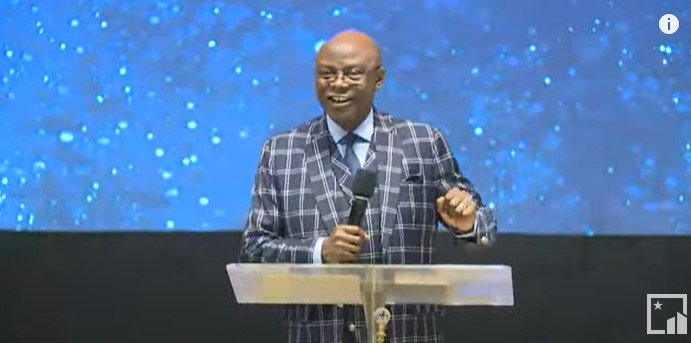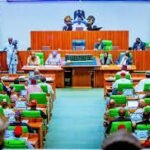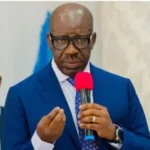In a powerful tribute to a revered traditional ruler, fiery cleric and political figure Pastor Tunde Bakare has revealed that the Awujale of Ijebuland, Oba Sikiru Adetona, played a critical but often overlooked role in the formation of the All Progressives Congress (APC), Nigeria’s ruling political party.
Speaking at a public lecture in Ijebu-Ode to mark the monarch’s 91st birthday, Bakare described Oba Adetona as a “silent strategist and nation builder” whose behind-the-scenes influence helped shape Nigeria’s contemporary political landscape.
>Without the wisdom and quiet interventions of Kabiyesi, what we now know as the APC might never have seen the light of day,” Bakare said to thunderous applause from a crowd of dignitaries, politicians, and traditional leaders.
Bakare recounted how, in the build-up to the 2013 merger of Nigeria’s leading opposition parties—ACN, CPC, ANPP, and a faction of APGA—Awujale served as a respected mediator and sounding board for key political actors. He disclosed that the monarch facilitated several crucial meetings between South-West and Northern political leaders, fostering trust and encouraging a shared vision of political change.
“His palace in Ijebu-Ode became a neutral ground where ambitions were tamed, egos were managed, and unity was forged,” Bakare stated. “He may not have spoken in public about it, but those of us who were close to the process know his role was indispensable.”
Though constitutionally a traditional ruler with no formal political office, Oba Adetona has long been admired for his progressive stance on governance and national unity. His reputation for honesty, bluntness, and patriotism allowed him to wield moral authority far beyond Ijebuland.
Bakare, who ran as a vice-presidential candidate in 2011 alongside then General Muhammadu Buhari, emphasized that the success of the APC merger owed much to “wise elders who understood that the future of Nigeria was more important than personal or regional interests.”
>Awujale never imposed his will, but he asked the hard questions, encouraged consensus, and reminded the power players that history would not forget their decisions,” Bakare said.
The remarks added a deeper dimension to the celebration of Oba Adetona’s legacy, which already includes decades of advocacy for traditional institutions’ relevance, educational development, and principled leadership.
Political analysts say Bakare’s revelation confirms what many had long suspected: that traditional rulers, while publicly neutral, often play pivotal roles in shaping Nigeria’s political direction.
As the APC continues to grapple with internal challenges and a changing political climate, Bakare urged today’s leaders to remember the foundational spirit of unity and vision that brought them together.
>The legacy of the Awujale is a reminder that Nigeria needs wise, selfless leaders — not just on the throne or in church, but in every place where decisions shape our future,” he concluded.


























